- Home
- Kelley Armstrong
Deceptions Page 10
Deceptions Read online
Page 10
A terribly romantic story, and when I paused for effect, Gabriel motioned for me to get to the point.
"She never spent a night in it," I said. "He threw a ball to welcome her, and as the guests were leaving, they realized no one had seen her for a while. They found her in the lily pond, drowned. Accident, suicide, murder . . . no one ever knew, but Mills walked out the front door that night and never returned. He let the house fall to ruins. Which is how it still stands."
After I finished, there were about ten seconds of thoughtful silence where I thought Gabriel was actually experiencing some emotional reaction. Then he said, "Mills? Any relation to . . . ?"
"James Mills Morgan? Yes. Nathaniel was a distant cousin."
"Which is how you know the story."
"Um, no. Plenty of locals know the story. You've seriously never heard it?"
He shook his head. "If this house is connected to James, then the obvious answer is that he lured us here. The e-mails would be easy enough to fake with his technical skills."
"His team's skills. James himself isn't much of a techie. But yes, he could have convinced someone to do it. He doesn't have any direct connection to the property, though. I'm thinking of someone else who lured me to an abandoned building under false pretenses."
"Tristan."
I looked at the weed-choked lane leading to the ruins. "We should take a look."
The proper response at this point would be: Are you kidding? Or, Are you fucking shitting me? Gabriel would never be so profane, but the sentiment held. We'd been lured to an abandoned estate, and I wanted to go check it out? Clearly madness. But Gabriel only sat there, gazing down that lane, considering.
"I have my gun and my switchblade," I said. "Which I suspect wouldn't stop Tristan, but if he wanted me dead, he'd have done it at the psych hospital."
"He doesn't want you dead. None of them do. But that doesn't mean they don't pose a serious threat."
"So . . . no?"
He opened his door and got out. I followed.
CHAPTER FIFTEEN
It was said that the driveway to Villa Tuscana had once been topped with crushed marble, imported from Italy. I don't know how likely that is, but there was no sign of it now. The lane passed between rows of giant hemlocks and was choked with ivy and wild roses, so thick that we couldn't see beyond the tangle.
I knew what was there, though: one of the most haunting and beautiful places I'd ever seen. My dad had brought me there, twelve years ago, after I heard about it at a party with the Morgans and I'd begged to go see it. We hadn't told my mother, of course. It was trespassing. Also, we'd get dirty.
My dad had been almost as enamored of the Villa as I was, but in a very different way. I'd seen spectacular architectural beauty reclaimed by nature. Even now, I could feel the pull of it, an intimate, primal mingling of the civilized and the wild that called to me.
To Dad, Villa Tuscana had been a lesson. No matter what you accumulated in life, it meant nothing if no one cared enough to continue your vision. Now, being here and thinking of him, my mind turned to the department store, his life's work. Yet as soon as I felt guilty for abandoning it, I could hear his voice.
You've got a world of choices, Livy. Don't let anyone make you feel like you're supposed to do anything you don't want to do.
I cleared my throat and pointed at the house, now just visible ahead. "Villa Tuscana is considered one of the finest examples of Italian landscape design in America."
"I . . . see."
"My dad used to bring me here," I said. "Lots of memories. That means you have two options: either you let me play tour guide or I collapse in a blubbering blob."
"Blubbering blob?"
"I could say that I'll collapse like a grief-stricken Victorian lady, sobbing silently on your loafers, but I'm not a pretty crier, as you may have noticed. Tour guide, then?"
I didn't wait for him to answer.
"When my dad first brought me here, I was already into architecture, so he got me a book on Italianate and we spent the day, me snapping pics on my new digital camera and him pointing out structures and details for me to identify. Like a reverse scavenger hunt."
"What's that?" He pointed at a structure almost hidden on our left.
"Tea house," I said. "It's an open pavilion at the end of a promenade terrace. While tea houses are generally considered British architecture, this one was done in Italian style. And thank you for playing."
We continued the game until we'd crossed the vast lawn to the front of the house.
"It's very . . ."
"Plain?" I said.
"I was going to say large, but yes, I suppose I would have expected something more ornate."
"Italianate style in nineteenth-century America was a reaction to the more ornate Gothic Revival and Victorian that you see in Cainsville. Personally, I like ornate. But I can see the appeal of the smooth lines and simple arches. I will point out, though, this grande dame's face is on the other side, overlooking the lake. And it is amazing." I inhaled. "Which is not why we're here at all."
Gabriel shrugged. "There's no reason not to enjoy the setting."
"A point of view I share, which likely means we have been in dangerous situations far too often. Summoned to an abandoned house? Huh, well, let's do some sightseeing first before all that life-and-death nonsense crops up."
He smiled, a real and unmistakable one. "A perfectly valid way to look at things."
"Agreed. But we should at least pretend to be figuring out why we were summoned."
Gabriel walked along the side of the house. I climbed the steps and poked my head through a hole in the boarded-up door. Inside, it was too dark to see more than walls and shadowy piles of debris.
"Anything amiss?" I asked.
"Nothing I can see."
"Me neither."
I hopped onto the thick marble railing as Gabriel murmured, "Careful." I balanced there and surveyed the grounds, seeing only weeds and rubble.
"Nothing at all?" Gabriel said as I jumped down.
"If you mean omens, no, there isn't a helpful trail of magpies."
"Keep looking."
"It's not like that. I can't conjure them up--"
"Then don't look. Observe."
"What the hell is that supposed to mean?"
He shrugged. When my gaze moved left, he said, "That way, then."
"I don't see anything that way."
"But you feel as if you should." He strode around the side of the house. "You see, but you do not observe. The distinction is clear."
"I hate it when you do that."
"No, I don't think you do."
We rounded the side of the house to see a collection of small buildings.
"And this is . . . ?" Gabriel asked.
"The service court. Stables over there and there." I pointed to the crumbling buildings. "Servants' quarters around back."
"And that?" He nodded toward a long narrow building lined with copper doors. "They look like garages."
"They are. Twenty of them, built in a day when few people could afford cars. An obscene luxury . . . though admittedly, one I can appreciate."
We walked to the garages. Most of the windows in those fancy copper doors had been smashed and some of the doors themselves were ripped open, revealing only debris inside.
"Not terribly exciting," I said. "And I'm not picking up so much as a twinge to tell me where to go next. Any more Holmes quotes for me?"
His brows arched. "Is that who I was quoting?"
"You know damned well you were. Not for the first time."
"It is entirely accidental."
"Right, so you've never read Sherlock Holmes? Or seen any of the endless movies and TV shows?"
His brows shot higher. "That would imply I have time for such frivolities. I don't watch television or movies, and while I read a fair bit, fiction would hardly advance my education. Data, data, data. I cannot make bricks without clay."
I crossed my arms and glowere
d up at him. "Obviously, you've made an exception."
"I never make exceptions. An exception disproves the rule."
"I hate you so much right now."
He laughed, and it was a glorious thing to hear, and I wanted . . . I wanted more. I wanted to capture this mood and hold on to it. Abandon any purpose for being here, grab his hand and race around to the lake side, show him the best place to climb up and gaze out over the water, to explore the ruins and not care why we'd come. Seize this playful mood of his and see how far I could take it. To be immature and, yes, childish.
The moment I thought that, I heard a child's giggle. I spun around.
"Olivia?" Gabriel said.
He stepped closer, shades off as he looked about, frowning slightly, but the good humor lingering in his eyes, along with a warmth and an openness I hadn't seen there before.
The giggle came again. I wanted to ignore it. Go away and let me have my moment. It might never come again and--
A small figure slipped from the shadows of the garages. It was the blond girl from my dreams and visions. She wore Mary Jane shoes and an organdy party dress covered in roses.
I spun to check on Gabriel.
"Don't worry," she said. "He's still there."
He followed my gaze, and his frown deepened.
"He doesn't see me." She tilted her head, her eyes fixed on him. "Not really. But he senses I'm here."
I remembered the alley, how we'd been separated and I'd seen Gwrach y Rhibyn washing what seemed to be his shirt. I glanced back at him. "Stay close, okay?"
Another lift of his brows, as if to say, Of course.
"He will," the girl said. "For as long as you let him. And you must let him. Both of them. It's when you choose that you are doomed. All of you. All of us."
"I'm not good with riddles," I said.
"Olivia . . . ?" Gabriel's voice was low, as if to avoid frightening away whatever he could not see.
"It's the girl," I said.
"The girl?" She scrunched up her nose. "I have a name. Many of them."
"And they are . . . ?"
"You already know a few. Matilda. Eden. Olivia. I have more, but the others aren't as important."
"So you're . . . me? Some memory of myself?"
"I am you, and I'm not you. I'm all of you. All of them. They are you, and they are not you."
"More riddles. Great."
Her nose scrunched again. "They aren't riddles. They're facts. You just don't understand them. I need to tell you the story."
"Is that why we were summoned here?"
She hesitated. Then she gave a sly smile. "Yes, that's exactly why--"
"How'd you do it?"
"Summon you? I . . ."
"You didn't. Someone else did, for some other purpose."
"Yes, but it's not important."
"It is to me."
"It shouldn't be. In the larger scheme of things, it's inconsequential. This is important." She held out her handful of black and white stones. "The rest?" She scooped up sand from around her feet and let it run through her fingers. "The rest is not. What you find here will be terrible. But, in the end, it is but a distraction luring you from the path."
"So you know what I'm supposed to find here?"
"Yes."
"Will you lead me to it?"
"No. I will tell you a story, and then you should leave. What lies here is best not found. Not by you. Not by anyone, if that were possible. It will only interfere. Ashes to ashes, dust to dust."
"And if I disagree?"
"Then you'll have to find it yourself. I'll not bring you pain."
I turned to Gabriel. "There's something here I'm supposed to find, but she won't help me. She wants to tell me a story."
I thought his answer would be quick. Forget that and get to work. Find what we were brought here for.
"Hear the story," he said. "This is the second time she's tried to tell you. You should listen."
I glanced at her. "Fine. Go on."
"Another day."
"What? Look, if you have something to tell me--"
"I do. A different story. You aren't ready for the other yet. You don't understand enough. I see that now." She spun, her dress belling out, face raised to the sun. "You like it here. Do you know why?"
"I appreciate fine architecture and--"
"Don't be silly. There are old buildings everywhere. But you're drawn to this one. As he is." She darted to the nearest wall and ran her hand over an ivy-filled crack. "It tells a story of our past. Of our revenge."
"Our . . . ?"
She pointed at Gabriel. "His. Ours. Fae. Our memories. We can hear the laughter here, feel the joy, smell the fire, touch the pain, see the mighty hand of nature taking vengeance for us."
She fingered the ivy, creeping ever deeper into the stone, those tiny green vines slowly but relentlessly ripping the stone building in two.
"Do you hear them?" she asked.
"No--"
"Because you aren't listening. Close your eyes."
I sighed, shut them, and crossed my arms. Gabriel murmured, "Olivia . . ." and I knew what he meant. I know this makes you uncomfortable, but we aren't getting any answers as long as you resist.
I like my mysteries clear and real, with facts and clues that I can follow. Ego, I suppose. I wanted to solve the mystery myself, not stand before a ruined house talking to a child no one else could see.
I uncrossed my arms and let my mind clear, as I did when I was looking for omens. Shifted to that other state, where the smells and sounds of the real world faded and--
Laughter. Voices, too, speaking in a tongue I didn't recognize. It didn't sound like Welsh, though it had similar notes. I caught the strains of strange music, unlike any I'd heard, and I started toward it--
Gabriel caught my arm, and I jolted from that other place.
"Tell him what's happening," the girl said. "He's trying hard to be patient, but he isn't very good at it. He needs information." Her voice rose to a singsong. "Data, data, data."
"That was a quote," I said.
"Perhaps, but it's also him. Tell him what's happening."
I did. Before I finished, the girl took off, racing around the garages.
"Hey!" I said.
"The next part is over here," she said. "Hurry or you'll miss it!"
CHAPTER SIXTEEN
I ran after the little girl. There was a tumble of ruins past the garage, some building not strong enough to withstand the crushing hand of nature. I picked my way around it and through a tangle of bushes and--
Three men stood there. I stopped short, backing up into Gabriel, who caught me. I glanced over at him. He was scanning the landscape--the field and trees, the lake just visible behind them. He gave no sign of seeing the men, and when I looked again, I realized why. The one closest to me was dressed in an old-fashioned hunting jacket and boots, his hair slicked back, with massive sideburns.
Men from a different era. Ghosts or visions. One leaned on a shovel. Another held a gun. The third was dapper, wearing gloves and a bowler hat. When I turned, the Villa and all its buildings were gone, and I saw only field and trees and holes. Construction had just begun.
"I'm telling you, there's something here," said the man leaning on the shovel. The foreman, I guessed. He had a thick Scottish accent.
"And I'm not denying it," said the man with the hunting rifle. "We've got squatters, Mr. Mills. That's what happens when you build on land long empty. Folks consider it theirs."
The foreman shook his head. "If it's squatters, then where are the huts? The tents? Whatever's here, it's not natural."
"It's perfectly natural," the hunter said. "We've seen them and we've heard them. They're canny, always flitting about, hiding on us. But you're making a fool of yourself, Campbell, filling Mr. Mills's ear with your old-world nonsense."
"Mr. Napier?" The dapper man--Nathaniel Mills--spoke to the hunter. "I believe you have work to do. I want those fox holes cleared out today."
"I'd rather be clearing the squatters," Napier said. "Begging your pardon, sir, but I believe they're a greater nuisance than a few foxes."
Mills dismissed the hunter, and the man stalked off, grumbling under his breath. When he was gone, Mills turned to the foreman.
"Whatever's out there isn't canny at all," Mills said. "It's uncanny. Unnatural. I've heard laughing when no one's there. I've seen figures that disappear in broad daylight. The other night, when I was walking the grounds with my dogs, I heard music and my hounds wouldn't take another step. They tore back to the motorcar and cowered there. Napier might think me a fool for saying so, but I'll believe what I see and what I hear. My granny used to tell me stories . . ." He peered across the wild yard. "Something's out there, and I'll not bring Letitia here until it's safe."
"You're a wise man, Mr. Mills. Folks like Napier don't understand. They think every danger can be fought with a good hunting rifle."
"This one cannot." Mills looked at the foreman. "I trust you know how it can be handled?"
"Not myself, sir, but I know folks that do. The question is how you'll want it dealt with. Like those foxes, we can smoke them out and hope they'll relocate. That's what I'd advise myself."
Mills shook his head briskly. "No. I told Napier I don't have time for that with the foxes, and the same goes for these . . . whatever they are. I want them gone. Permanently. Get them gone and call in a priest to bless the land. I want a good Christian home for my wife and our children."
The foreman looked uneasy. "These aren't foxes, sir. They're--"
"--a far more dangerous sort of vermin. Get them gone. If you can't, I'll find someone who can."
Mills strode off, disappearing as he walked. I turned back to the foreman. He'd vanished, too. The ruins reappeared, and the little girl, who stood watching me, waiting.
"There were fae here," I said. "But they weren't the sort that are in Cainsville."
"They were and they weren't. When the woodlands began to vanish in the Old World, some fae came to the new one and founded towns like Cainsville."
"Where they could control their environment. Keep to themselves and maintain the boundaries. Mingle with humans only as much as they cared to mingle."

 The Calling
The Calling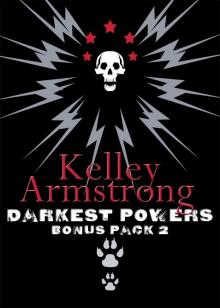 Darkest Powers Bonus Pack
Darkest Powers Bonus Pack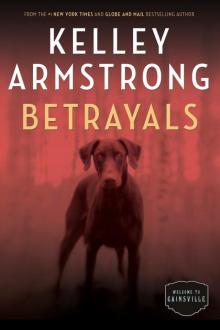 Betrayals
Betrayals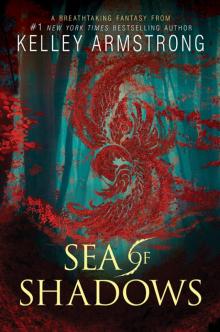 Sea of Shadows
Sea of Shadows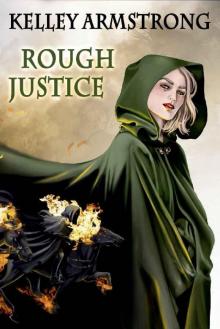 Rough Justice
Rough Justice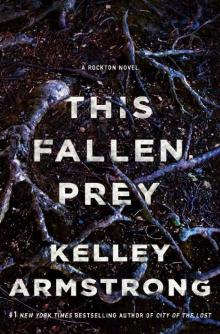 This Fallen Prey
This Fallen Prey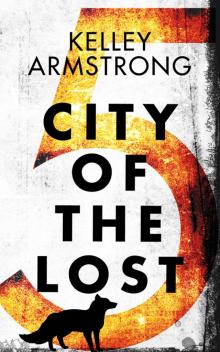 City of the Lost: Part Five
City of the Lost: Part Five Perfect Victim
Perfect Victim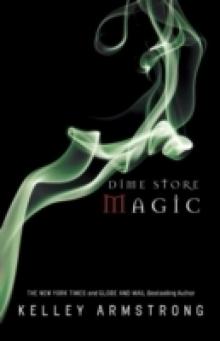 Dime Store Magic
Dime Store Magic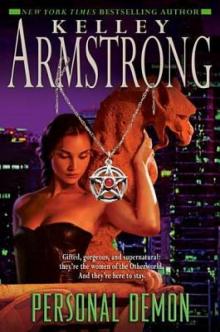 Personal Demon
Personal Demon Haunted
Haunted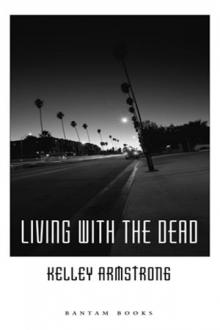 Living With the Dead
Living With the Dead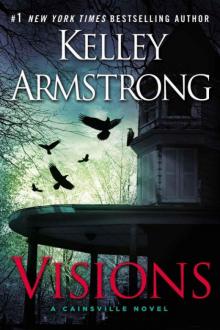 Visions
Visions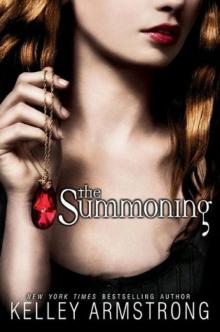 The Summoning
The Summoning Broken
Broken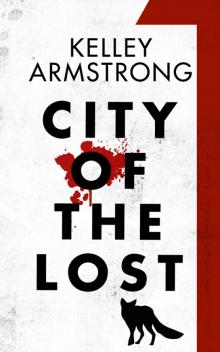 City of the Lost: Part One
City of the Lost: Part One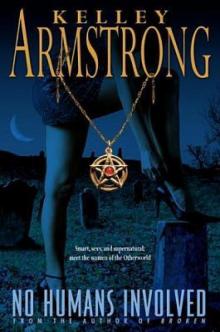 No Humans Involved
No Humans Involved The Awakening
The Awakening The Reckoning
The Reckoning The Gathering
The Gathering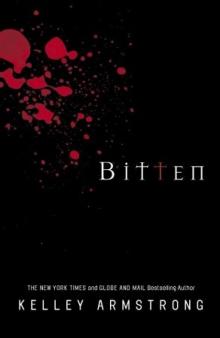 Bitten
Bitten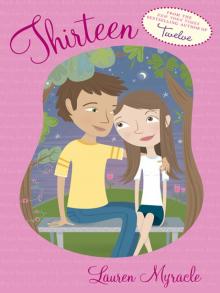 Thirteen
Thirteen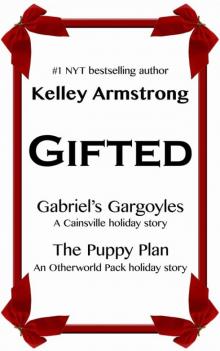 Gifted
Gifted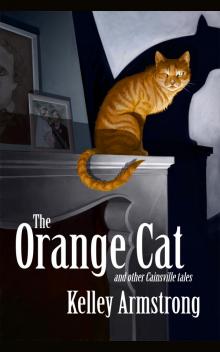 The Orange Cat and Other Cainsville Tales
The Orange Cat and Other Cainsville Tales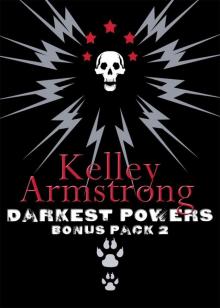 Darkest Powers Bonus Pack 2
Darkest Powers Bonus Pack 2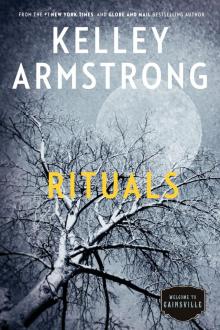 Rituals
Rituals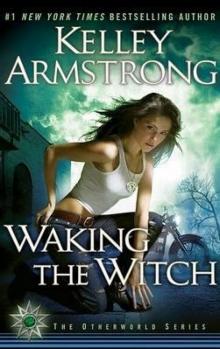 Waking the Witch
Waking the Witch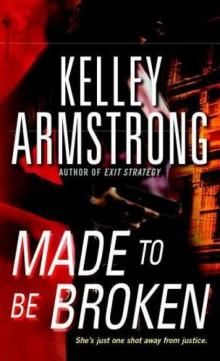 Made to Be Broken
Made to Be Broken Lost Souls
Lost Souls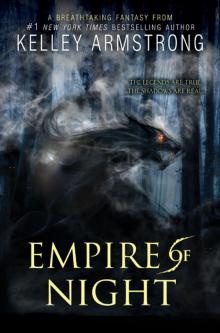 Empire of Night
Empire of Night Wild Justice
Wild Justice Double Play
Double Play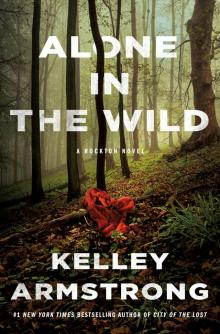 Alone in the Wild
Alone in the Wild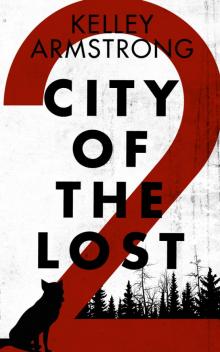 City of the Lost: Part Two
City of the Lost: Part Two A Stranger in Town
A Stranger in Town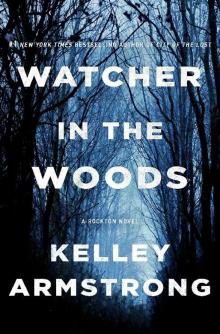 Watcher in the Woods: A Rockton Novel
Watcher in the Woods: A Rockton Novel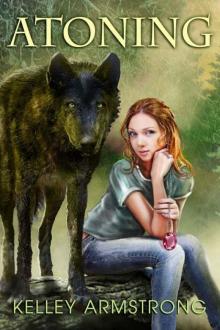 Atoning
Atoning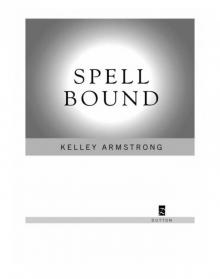 Spellbound
Spellbound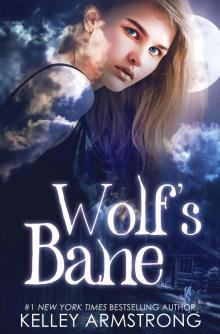 Wolf's Bane
Wolf's Bane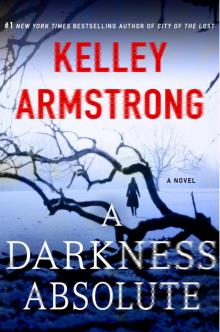 A Darkness Absolute
A Darkness Absolute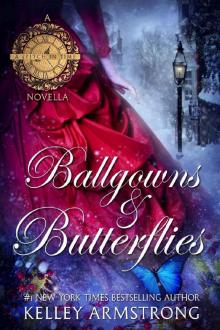 Ballgowns & Butterflies: A Stitch in Time Holiday Novella
Ballgowns & Butterflies: A Stitch in Time Holiday Novella Wherever She Goes
Wherever She Goes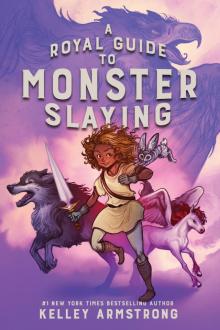 A Royal Guide to Monster Slaying
A Royal Guide to Monster Slaying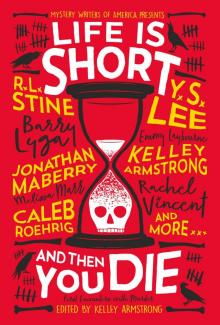 Life Is Short and Then You Die
Life Is Short and Then You Die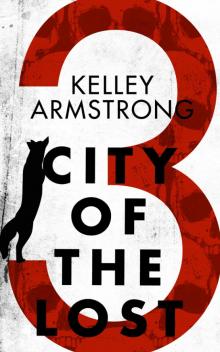 City of the Lost: Part Three
City of the Lost: Part Three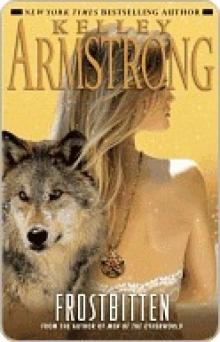 Frostbitten
Frostbitten A Stitch in Time
A Stitch in Time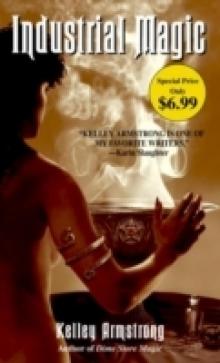 Industrial Magic
Industrial Magic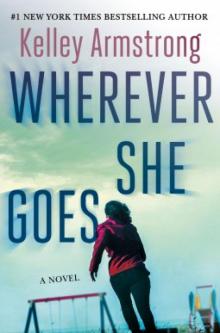 Wherever She Goes (ARC)
Wherever She Goes (ARC)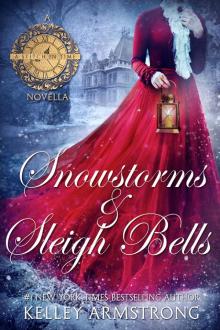 Snowstorms & Sleigh Bells: A Stitch in Time holiday novella
Snowstorms & Sleigh Bells: A Stitch in Time holiday novella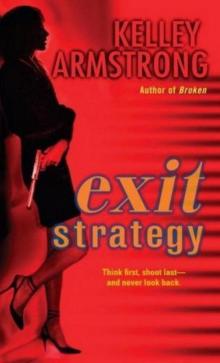 Exit Strategy
Exit Strategy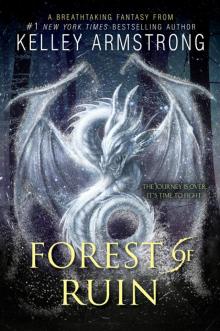 Forest of Ruin
Forest of Ruin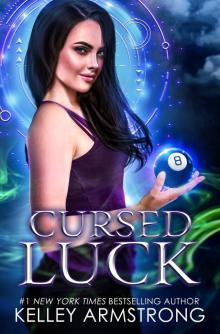 Cursed Luck, Book 1
Cursed Luck, Book 1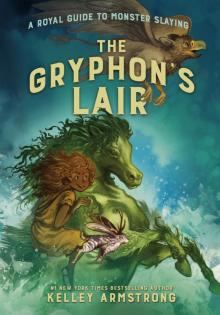 The Gryphon's Lair
The Gryphon's Lair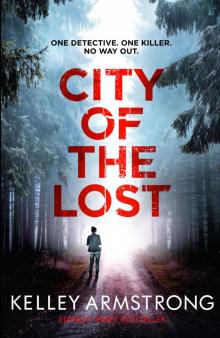 City of the Lost
City of the Lost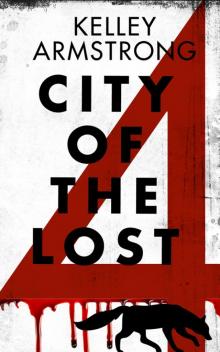 City of the Lost: Part Four
City of the Lost: Part Four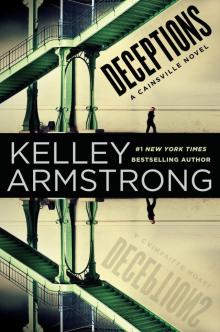 Deceptions
Deceptions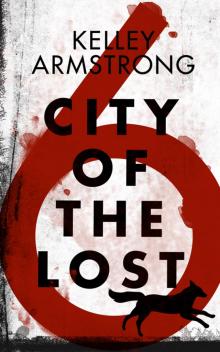 City of the Lost: Part Six
City of the Lost: Part Six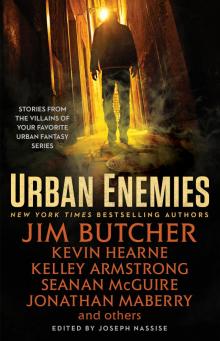 Urban Enemies
Urban Enemies Stolen
Stolen Every Step She Takes
Every Step She Takes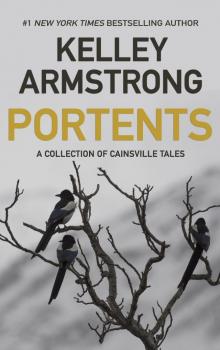 Portents
Portents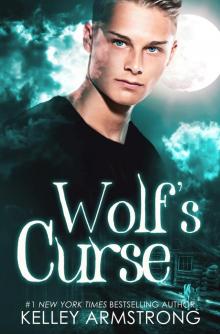 Wolf's Curse
Wolf's Curse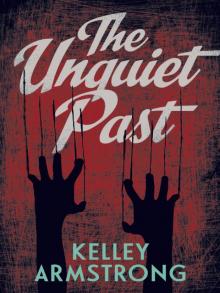 The Unquiet past
The Unquiet past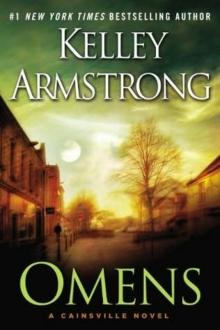 Omens ct-1
Omens ct-1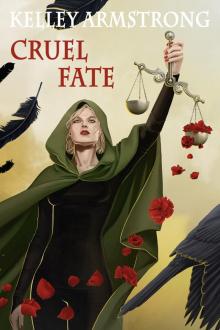 Cruel Fate
Cruel Fate The Calling dr-2
The Calling dr-2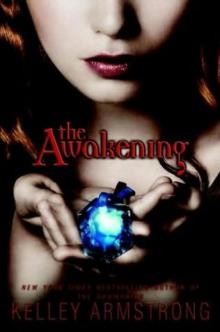 The Awakening dp-2
The Awakening dp-2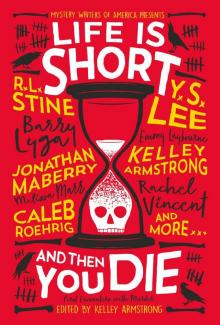 Life Is Short and Then You Die_First Encounters With Murder From Mystery Writers of America
Life Is Short and Then You Die_First Encounters With Murder From Mystery Writers of America Goddess of Summer Love: a Cursed Luck novella
Goddess of Summer Love: a Cursed Luck novella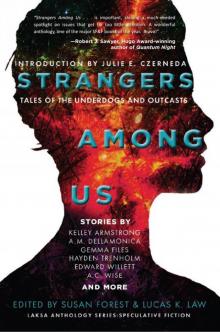 Strangers Among Us
Strangers Among Us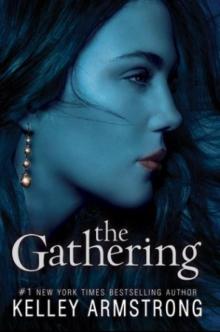 The Gathering dr-1
The Gathering dr-1 The Rising dr-3
The Rising dr-3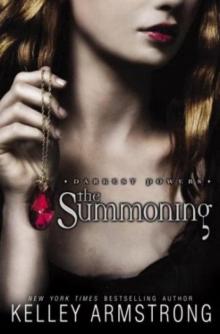 The Summoning dp-1
The Summoning dp-1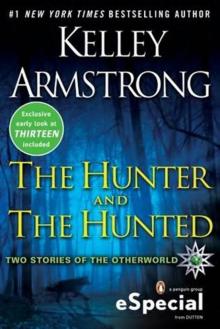 The Hunter And The Hunted
The Hunter And The Hunted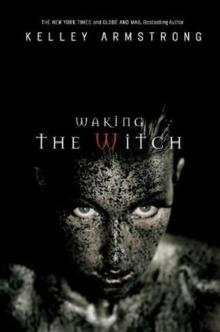 Waking the Witch woto-11
Waking the Witch woto-11